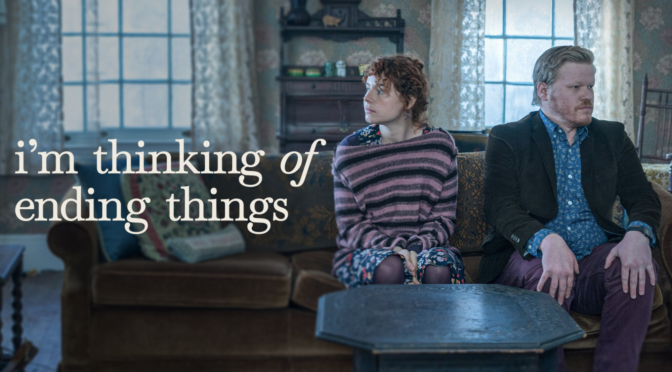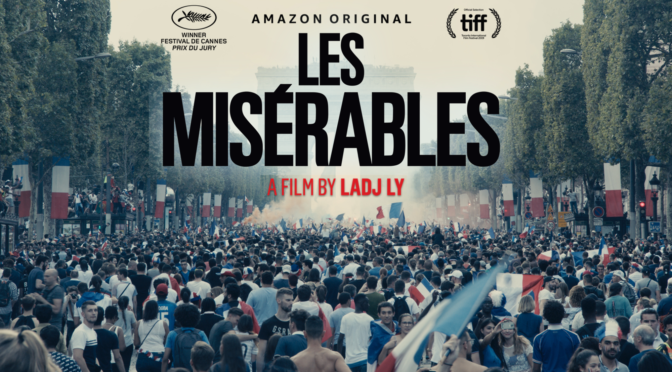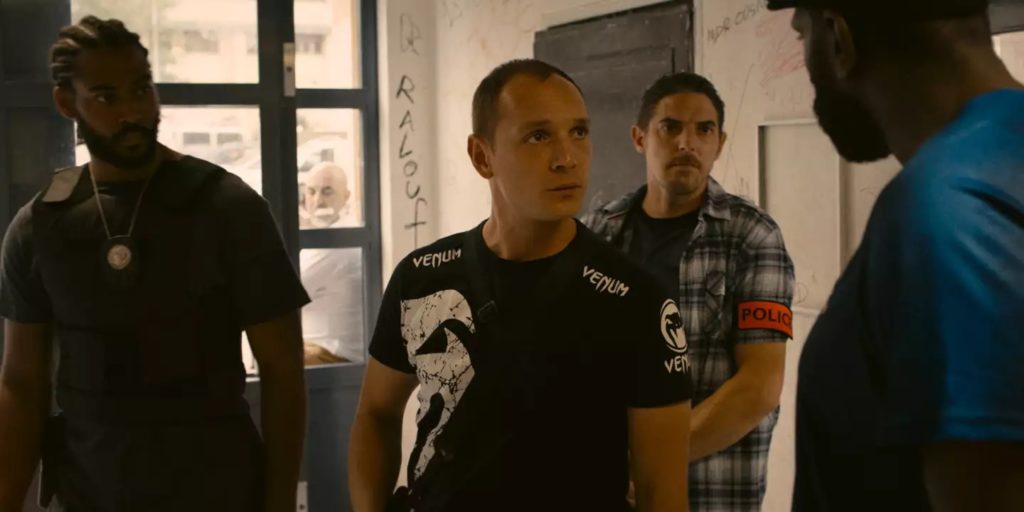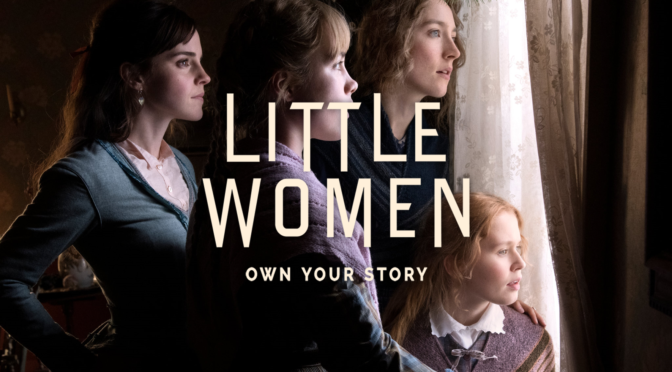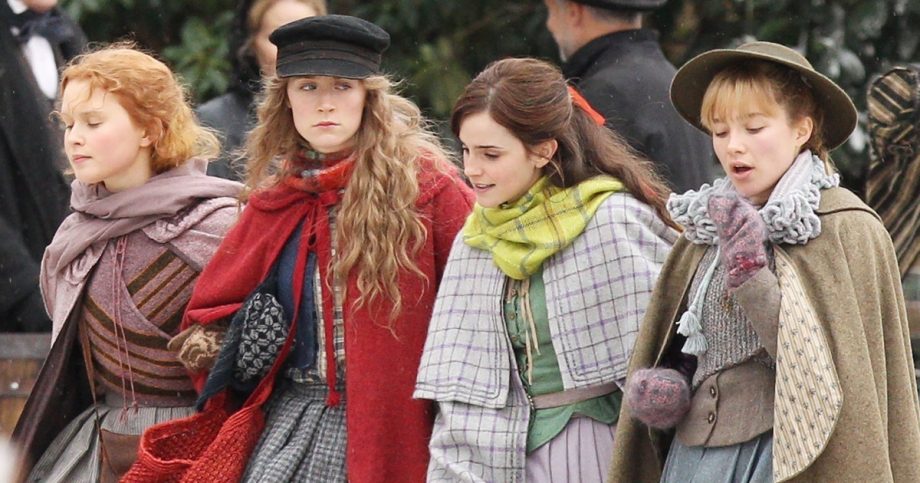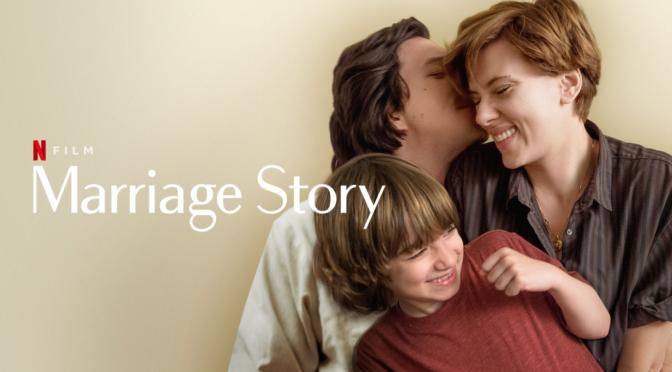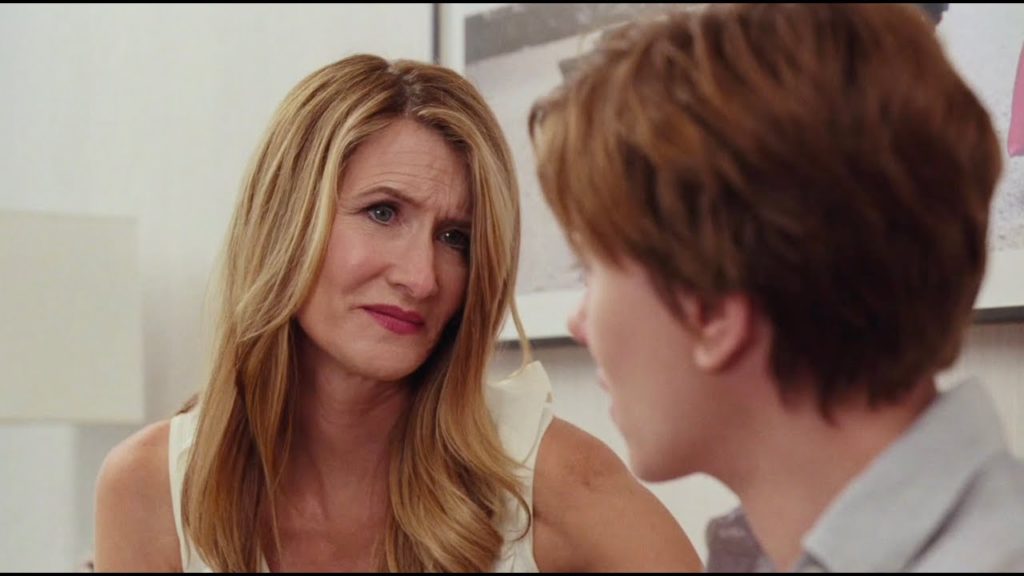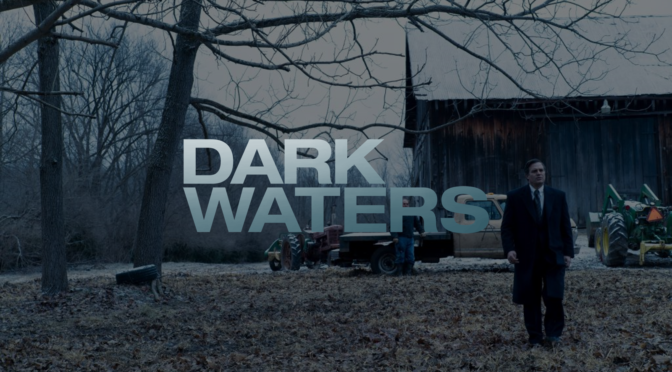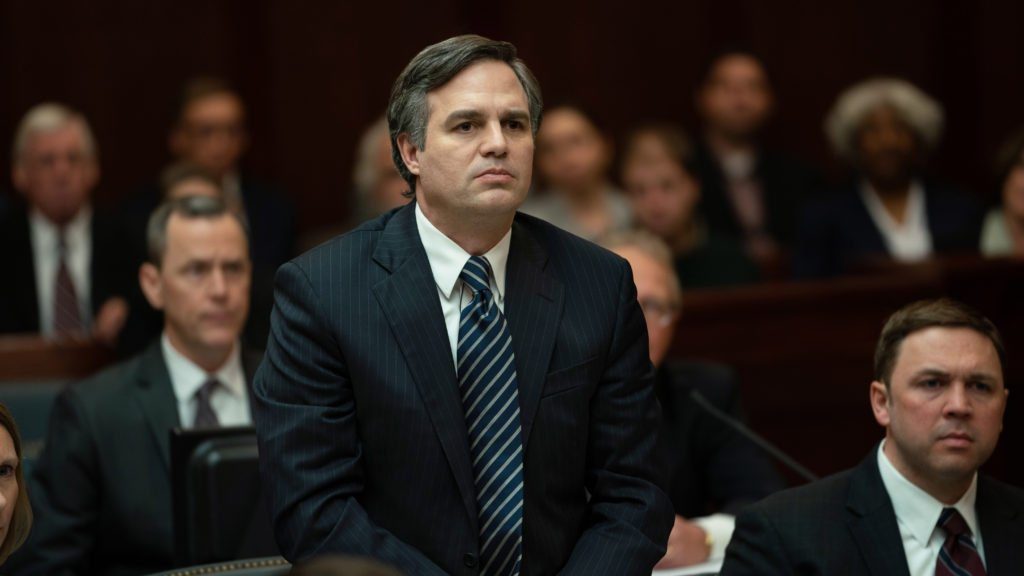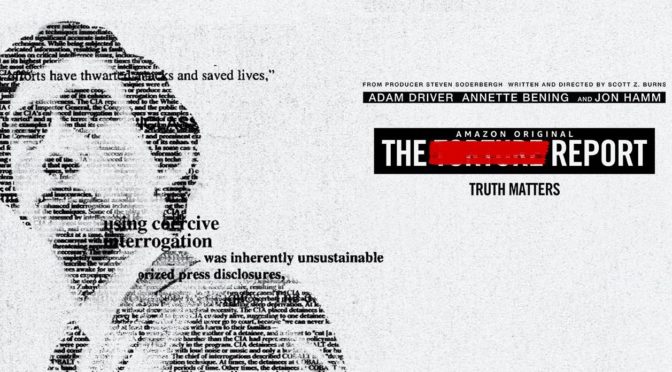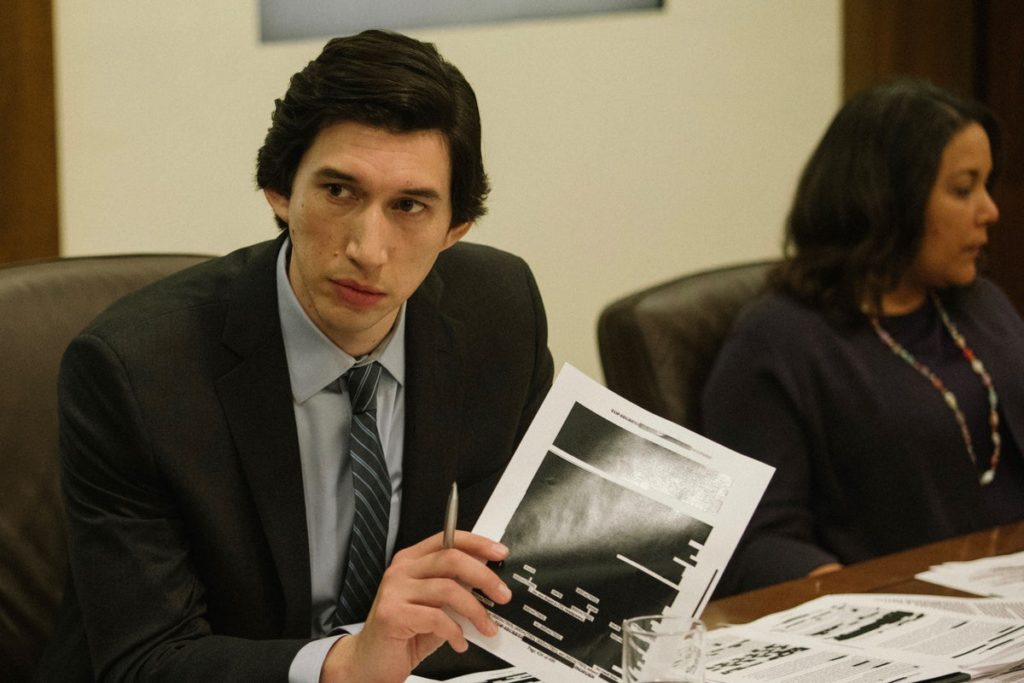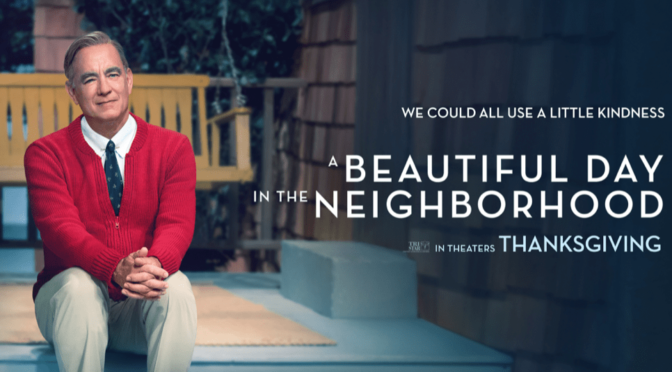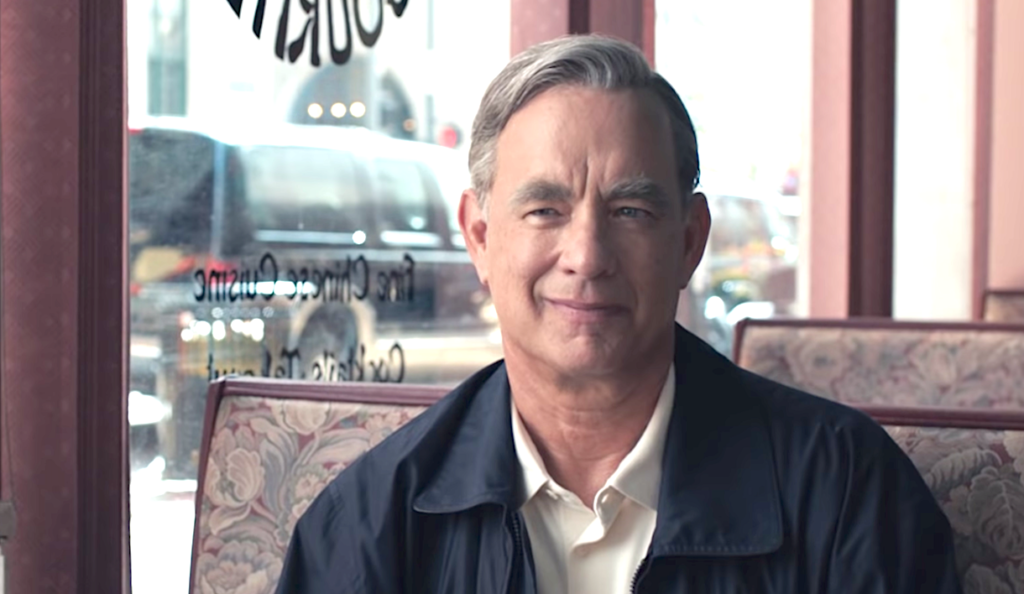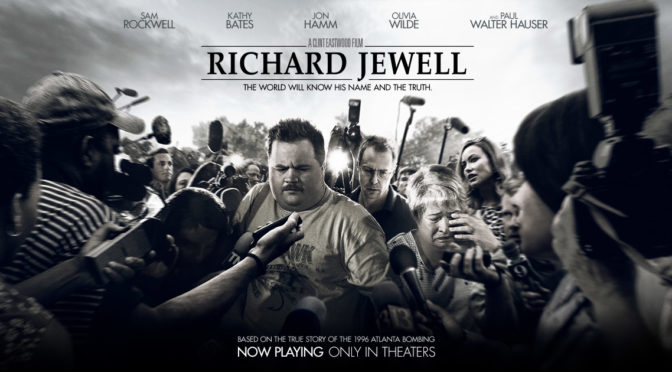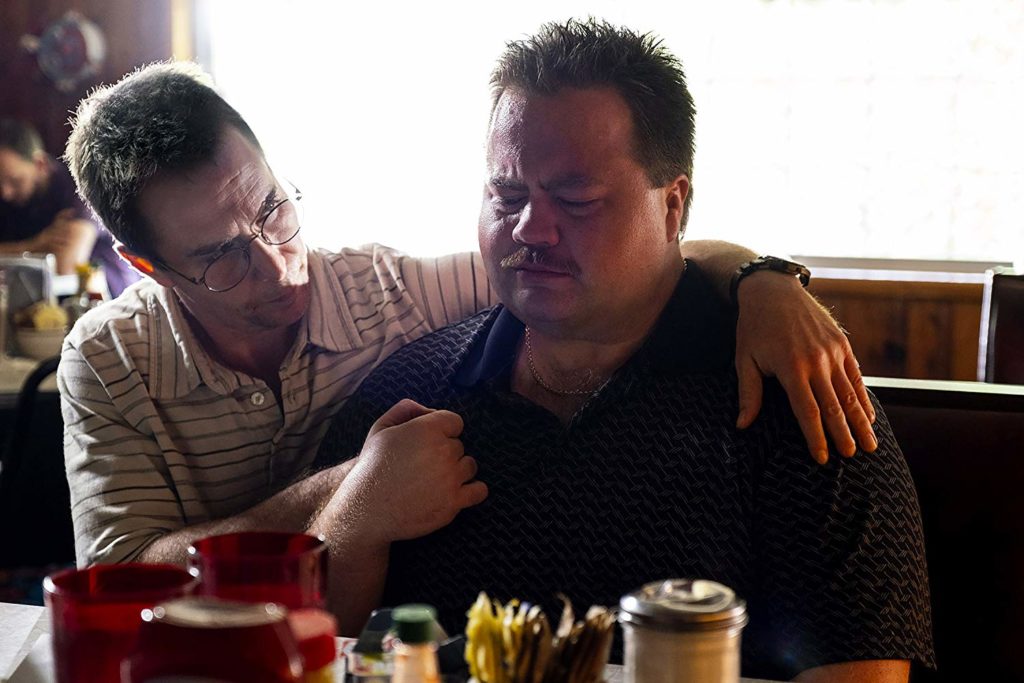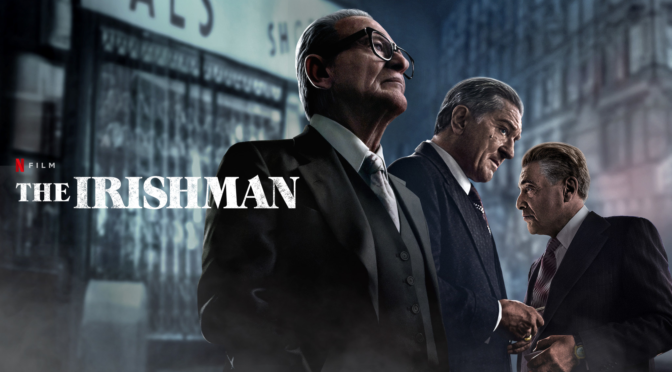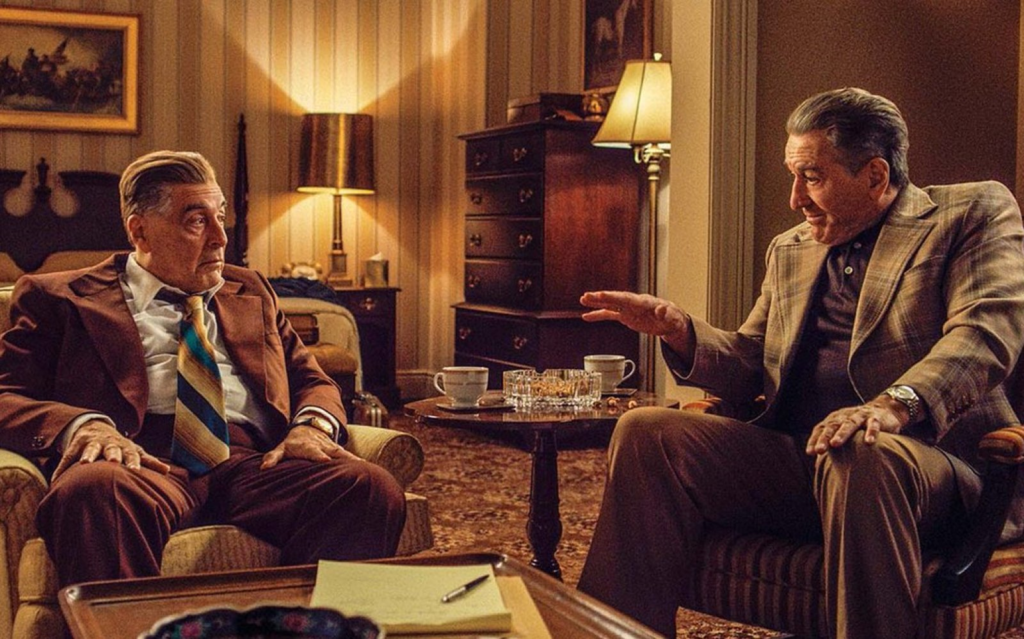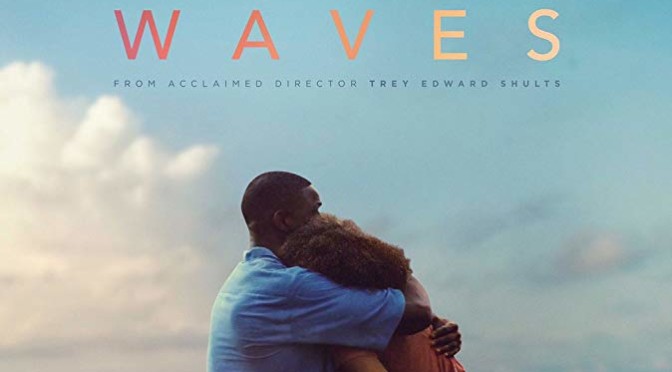It’s been 10 years since the last live action feature from Charlie Kaufman (Eternal Sunshine of the Spotless Mind) and his newest film won’t disappoint fans of his particular style. I’m Thinking of Ending Things, based on a novel by Iain Reid, follows a young woman (Jessie Buckley; Wild Rose) and her boyfriend Jake (Jesse Plemons; Game Night) as they drive up to meet his parents for the first time.
The film, like the book and most of Kaufman’s works, is heavy on introspection. During the drive we frequently hear Buckley’s voiceovers questioning her relationship. Although they’re initially presented as an idyllic couple, her first remarks (the film’s title) suggests otherwise. In the midst of taking the next step forward with Jake, she is actually considering breaking up with him and their conversations abstractly reference this.
It’s these protracted dialogues that will lose viewers. Some may find the seemingly unrelated and extended tangents exhausting. They are relevant to the main plot but, in the moment, they can drag on as the couple make obscure references to topics like literature, recitations of poetry, film criticism, and even the musical Oklahoma! which plays a more crucial role than expected. Within these conversations are subtle hints towards the film’s nature and the mindset of its characters and Kaufman deserves credit for his ability to convey information to the viewer without forced exposition.
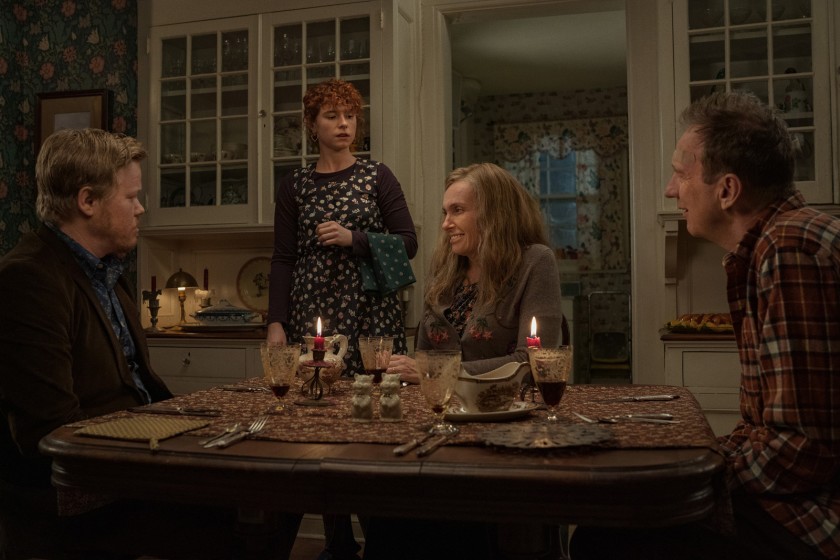
Compared to his first film (Synecdoche, New York), Kaufman has significantly upgraded his visual flair. The film is shot entirely in a 4:3 aspect ratio, likely intended to convey the mental claustrophobia experienced by the lead, and features a distinctive, eerie aesthetic. The drive takes place during a blizzard and heavy snowfall is almost always in the frame furthering the film’s constrictive feeling as if the characters are snowed in without a way to escape their current situations. Jake’s family home, the main interior location, is an old farmhouse that has a weathered and unsettling beauty. The wooden floors are worn, the furnishings are outdated, and the wallpaper features bold colors and patterns that manage to be rustic and cozy while still communicating unease due to their sickly shades of green and blue.
Throughout the film, and especially with Jake’s parents, supporting characters have alarmingly strange behavior. Jake’s unhinged mother and father are borderline deranged while trying to exchange pleasantries with their son’s new girlfriend and appear to change physically and mentally during their dinner. At times it even seems like the film’s genre is pivoting towards horror which deliberately deprives the viewer of comfort and certainty and keeps the narrative direction inscrutable for most of its runtime.
As the story approaches its conclusion, Kaufman veers away from the source material. It may be unsurprising coming from the man who wrote Adaptation, but the film takes the book’s psychological thriller narrative and expands it into a self-reflexive and surreal story about longing, loneliness, and fantasy. The ending may again lose some viewers but as perplexing as it initially is, the tonal shift leads to a much more thought-provoking destination than a straightforward translation of the novel would have. It better fits the medium, adds meaning to the alarming eccentricities that preceded it, and gives the viewer reasons to reexamine the film’s expertly layered narrative.

4/5 stars.
